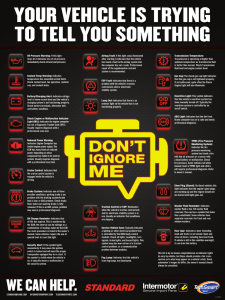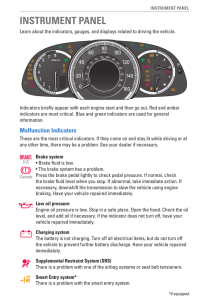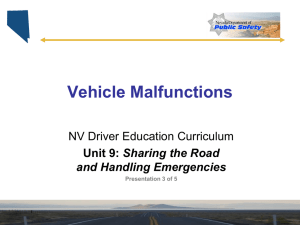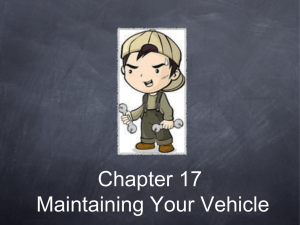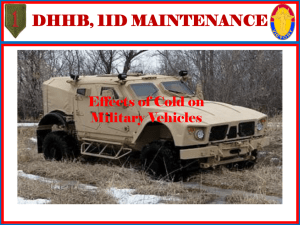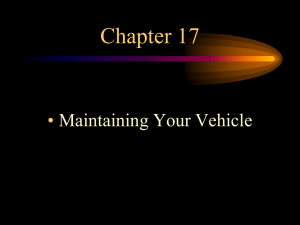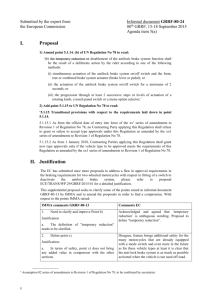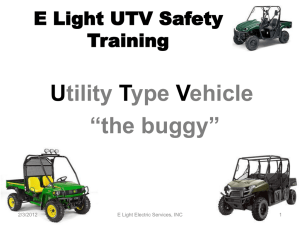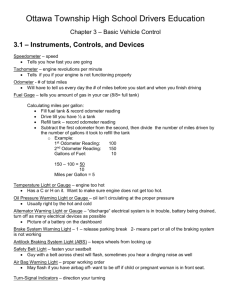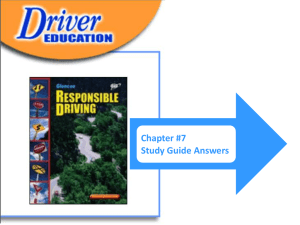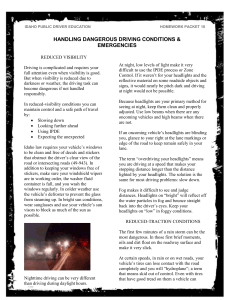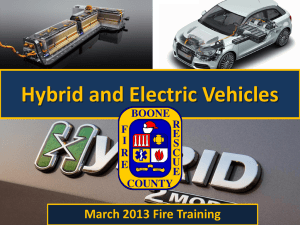Chapter 13: Vehicle Malfunctions
advertisement
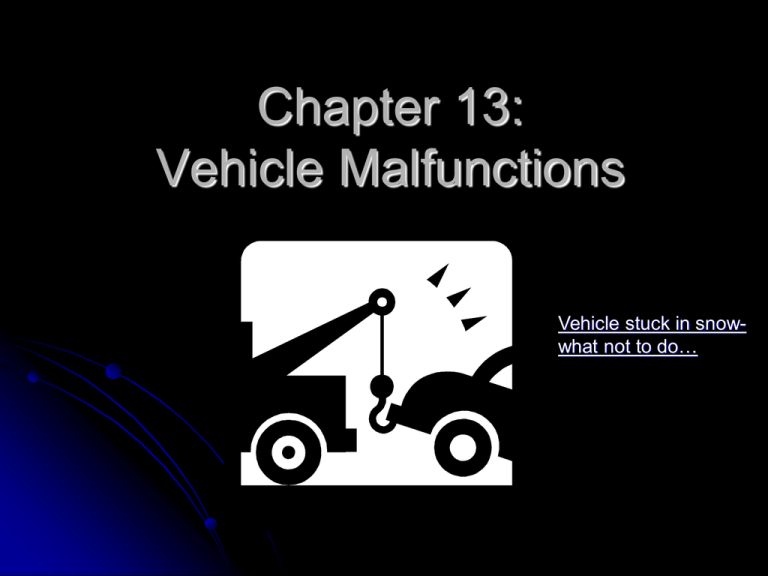
Chapter 13: Vehicle Malfunctions Vehicle stuck in snowwhat not to do… Tire Blow Out 1. Which way will your car tend to pull when a tire blows? 2. When changing a tire, which tire should you block off? 3. What are the devices called that hold the wheel to the vehicle? Flat Tire Video Brake Failure Pump the brake -------------- to the lowest gear Apply ---------------Search for an open zone ABS Brakes •What are they •How do they work? Accelerator Pedal Sticks Before driving, make sure floor mats are flat First, ---------------------------------------- Find an open zone and pull off the road Loss of Forward Vision List some ways that you could lose forward vision while driving. -----------------------------------------------------------------What would you do in these emergencies? Look through the crack in the windshield Roll down window and stick your head out of the window. Headlight failure, try hazards, parking lights, move off the road Use wipers Deep Water Escape Open a window and try to escape Find the ----------------in the rear of the vehicle If totally submersed, take a deep breath, try to open the door because the pressure should be equalized Turn ---------------------on so your rescuers can see your car Standing Water What happens when you drive through standing water? How can you tell the depth of the water? How many feet of water does it take for your car to possibly be swept away? How can you dry your brakes? Engine Failure Shift to --------------and try to restart your engine Overheated Engine Turn --------- Air and turn ----------- the heater Flooded Engine Do not ---------------the accelerator when trying to start your car if your car has FUEL INJECTION Car Stalls on Railroad Tracks If the train IS APPROACHING get all passengers out of the carwhich way do you run? Run ---------------the train but away from the tracks If there is NO TRAIN APPROACHING get everyone out of the car, then try -------------- ------------ and pushing the vehicle off of the tracks Skidding/Hydroplaning How do you regain control when you begin to skid? Steer ----------------the path of travel you want to follow Don’t Panic Take foot off of accelerator Apply the brake-ABS What does it mean to “Fishtail”? When driving on slippery roads, you should not use what vehicle device? ------------------------------- Total Steering Failure • Use -------- and --------------------------•Slow down but do not brake hard to cause a skid Power Steering Failure Can you still steer your car when you lose power steering? Yes you can, but it will be much more difficult Off-road Recovery DON’T PANIC! ----------------------------and slow down Regain control by straddling the edge of the roadway Check blind spot, signal and return to road How to Minimize Collisions • • • • Head On The worst collision with the most impact -----------------------------------------! Side Impact Accelerate or brake to avoid hitting or getting hit in the passenger area What part of the vehicle should you aim for? Rear End •If you are stopped- ---------------------- brake just before the collision and re-apply •If you are moving, flash brake lights •Move to an open zone Roadway Hazards Potholes Avoid if possible Drive around or “straddle” a pothole If you must drive through a pothole- go very slowly to keep better control Objects in the Roadway Avoid if possible Drive over if it is the last resort Wet Leaves •Go around if possible •Can be very slippery 1. Turn off both cars and accessories 2. Attach POS clamp to the (+) battery on the good car 3. Attach POS clamp to (+) of the bad battery 4. Attach NEG clamp to (-) of good battery 5. Attach NEG clamp to engine block of bad car (ground) 6. Start GOOD car first, then start the BAD car 7. Remove cables in opposite order Show me how it’s done… Engine Block + --Dead Battery red clamp (pos) black clamp (neg) --- + Good Battery
